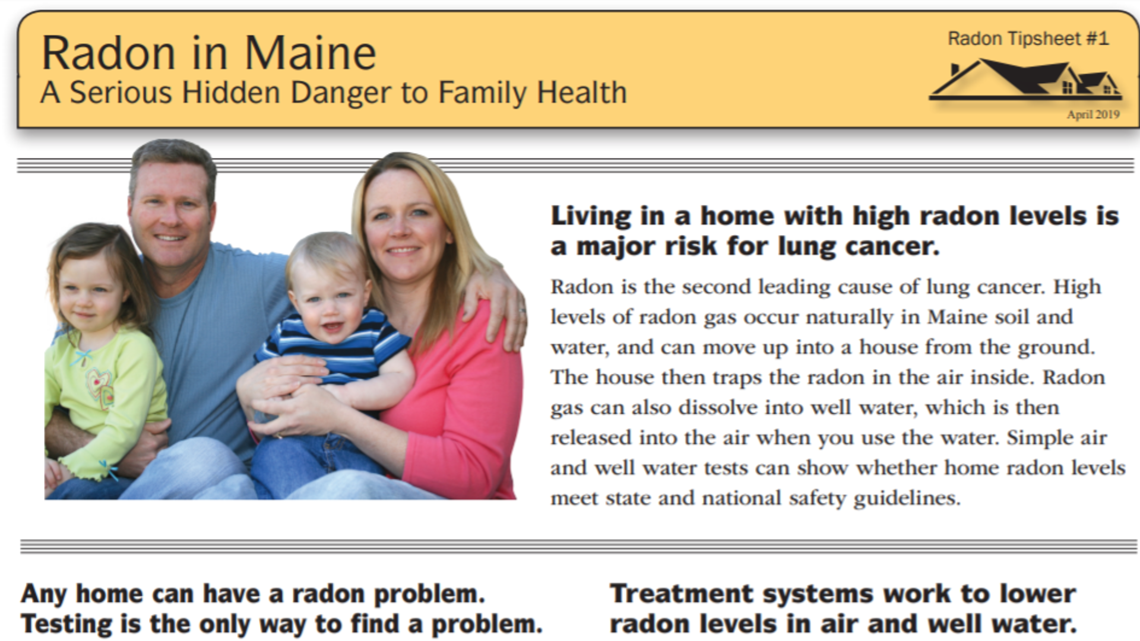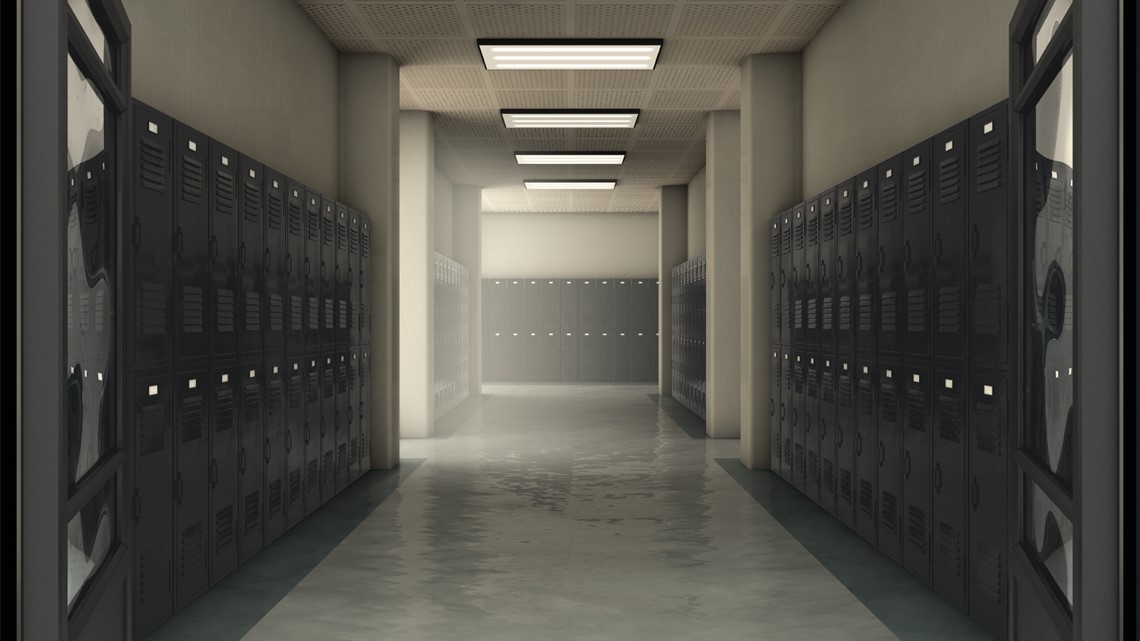MAINE, USA — Majestic and breathtaking, Maine is like no other state. With its rocky coastline and untouched natural landmarks, it earned the name "Vacationland." But deep within its rich soil, a deadly gas is seeping into the air we breathe, and experts confirm high levels of radon can put Maine families in danger.
“It’s a serious problem,” said Maine Radon Coordinator, Johnathon Dyer. He said studies show, “165 Mainers die each year, non-smokers, due to radon. Lung cancer due to radon.”
According to the EPA, radon is the second leading cause of lung cancer and is responsible for approximately 21,000 deaths in the United States each year.
You cannot see, smell or taste radon. In Maine, any building or home can have elevated levels of the radioactive gas due to the geological makeup of the state; there is a lot of uranium in Maine’s bedrock.
Dyer said a home is the perfect collector of radon because the gas moves up into a house from the ground and gets trapped inside. Maine winters are the worst scenario, according to Dyer. “Radon is drawn into your house from your furnace or chimney. It’s called the chimney or stack effect. It just sucks the radon into the house.” He said the only way to know if your home has a radon problem is to test it.


“The national average is 1.3 pCi/L, and Maine comes in about 4.3 pCi/L. The EPA limit is less than 4.0 pCi/L, so already in Maine, on average, we’re above the 4.0 limit,” Dyer said. “So that means not, 'Do I have radon in my house? How much do I have in my house?'” According to Dyer, “If you are in a house breathing 4 picocuries per liter it’s equal to about smoking 27 packs of cigarettes a year or 200 of chest x-rays a year.”
The EPA recommends that if a building or home has radon levels at 4 picocuries per liter (pCi/L) or higher, the problem should be fixed.
Landlords and owners of new buildings in Maine are the only ones required to test for radon. However, no one is required by law to fix a radon problem in any home or building, including schools in Maine, some of which, NEWS CENTER Maine found out, have not been tested for the deadly gas in years.
Dyer said, “20 years ago when we found some schools had high radon, some of the schools did various things to take care of it." Now, two decades later, there is a new law that will require all schools in Maine to test for radon every five years, effective October 2025.
Dyer said he hopes he can have some schools tested as early as November 2020, thanks to a $60,000 grant from the EPA. As far as testing all schools in the state, Dyer says it all comes down to when funding is available.


So, should Maine require radon testing for all buildings, including schools? Let us know what you think.
Also, if you are concerned about radon in your home, Dyer said testing is easy. You can purchase air and well water radon tests at your local hardware store. To learn more about radon levels in your town, click here to see the results at the Maine Data Network.

